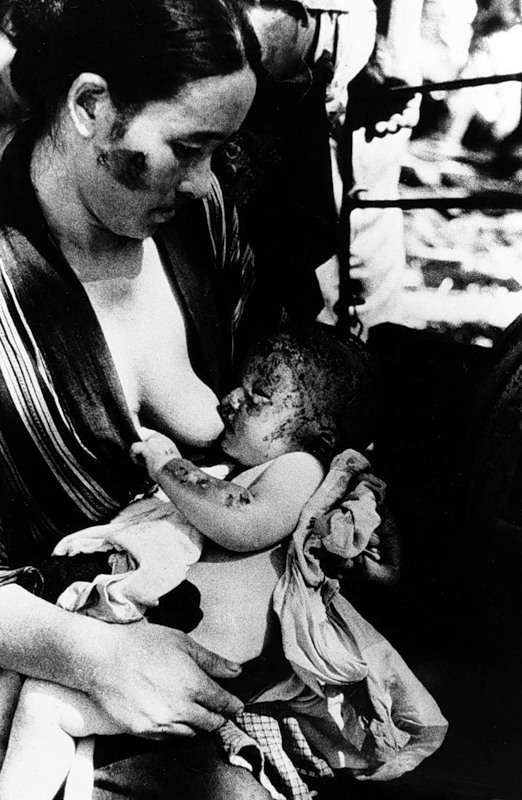
Hiroshima and Nagasaki: “I always remain that child”
The children of Hikari Armenian-Japanese Center mark today the 70th anniversary of the atomic bombs dropped by US aircraft on Hiroshima on August 6 and Nagasaki on August 9, 1945. The commemoration ceremony is held in Children’s Park in Yerevan.
70 years have passed since then.
What happened in the cities of Hiroshima and Nagasaki after their atomic bombings can be described in one word – hell. Documentary footage and testimonies of survivors are terrifying. Addressing this subject is highly painful as it means reading those testimonies, watching documentary shots and photos once again, and re-experiencing the horrors.
While looking through documentary facts about Hiroshima today, I heard the words of one of the pilots who dropped the ‘Little Boy’ atomic bomb on Hiroshima that he was sure the bomb would not explode. This does not change anything in what happened.
Moreover, it makes the story of Nagasaki bombing even more horrific: if Hiroshima was an attempt to test an atomic bomb, then Nagasaki, which became a target just days later, was a cold calculation, a conscious step by everyone – the U.S., other countries, the humanity. War makes humans calculating - they want a victory at any price. And war makes the others indifferent – the humanity shows their nasty face when the laws of war come in force… Strange it may seem, but today even politics prevent politicians, or the humanity that became a witness, to call the tragedy of August 1945 by its proper name – a crime against humanity. Regardless of the fact that the statute of limitations of WWII crimes expired, the atomic annihilation of Hiroshima and Nagasaki and their residents should be called by that name because crimes against humanity have no statute of limitations and do not recognize politics.
When looking through documentary material this year, I saw the eyes of a girl aged 2-3 among the ruins, shaking with pain.

The photo of the mother breastfeeding her baby in Nagasaki on August 10 is also hard to forget.

While the U.S. is a superpower displaying its advantages, while nuclear weapons remain a god, I am afraid the massacre that took place 70 years ago will not be called by its proper name. And I do not accept any political analysis about expediency (or not expediency) of atomic bombs. I have the right – I am that child who did not know why she was being killed.
The spirit and fortitude of the Japanese is amazing. They have managed to survive the tragedy and retain their national image. No Japanese film shows directly that tragedy. They are stories of love and a desire to live. I am happy to see Japan that way.
By A. Voskanyan
Newsfeed
Videos






























